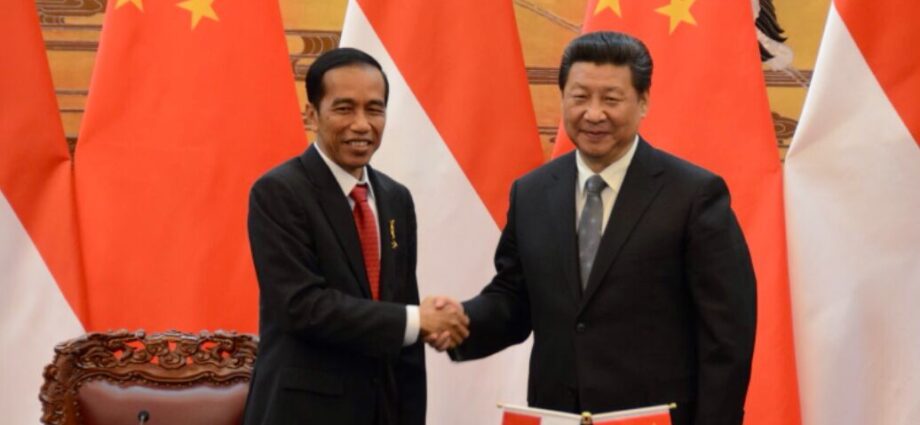
Tensions between the US and China put Indonesia, and its trading interests, in a tricky position.
By Nur Rachmat Yuliantoro, Associate Professor and the Head of Department of International Relations at Universitas Gadjah Mada in Yogyakarta, Indonesia
November 7, 2023
The US will host the upcoming APEC meeting against the backdrop of rising economic nationalism and growing tensions with China.
Indeed, it is still being determined how helpful the US-led international groups like APEC will continue to be as an increasingly confident China asserts itself on global institutions.
There is less certainty China will stick to established platforms because it is changing its stance, which could hurt the US’s influence in groups like APEC.
This puts Indonesia, seen as a close partner of China in recent years, in a tough spot. As long as there are problems between the US and China, Indonesia needs to be careful about the agreements it makes to protect its economic interests.
As China makes its presence known through the Regional Comprehensive Economic Partnership (RCEP), for example, the current order is being reevaluated in a broader sense.
Because China has changed how it interacts with global trade platforms, some are worried about its commitment to groups like APEC. Historically, the US has been the most powerful country in APEC. But as tensions between the US and China rise, Beijing may rethink how useful it is to take part in platforms where the US has a lot of power.
China has started and is actively participating in other trade deals, which shows it may be changing its strategy. China is leading these steps to solidify its position in regional economic unity and create rules that work for it.
The RCEP, the world’s largest free trade area with 15 Asia-Pacific states, shows that Beijing is determined to change the region’s economic landscape in its way.
China has proposed free trade agreements with Japan and Korea. This would strengthen business ties in East Asia. On the other side of the world, China has been strengthening its trade ties with Latin American countries, which could potentially weaken Washington’s influence in the region.
These efforts might not be able to replace APEC completely, but they are part of a more significant trend in which China wants to shape economic stories in places with more power. Setting up forums that better serve China’s economic and strategic goals shows how aggressive the country is about doing business in the region and around the world.
The idea of a globalised and linked international economy is in grave danger because of the rise of economic nationalism.
People used to believe in multilateralism’s benefits, but big powers like the US and China are now fighting over trade and tariffs.
Because of nationalist policies, trade barriers, and a focus on national interests, the global economy is becoming increasingly broken up. APEC now has to navigate these rough seas to carry out its goal of encouraging people to work together and talk to each other. The fear of nationalism makes it harder for us to solve problems in the world economy.
The rise in economic nationalism severely threatens the foundations of a globalised world. As tariff fights between major powers worsen, they threaten multilateralism because it values individual interests over working together to find global answers. How well-established groups like APEC will do in the face of rising nationalism is uncertain.
The world economy is getting even more complex and could change quickly because of rising protectionism. When national interests come first, the benefits of working with other countries are lessened. The threat of nationalism makes people question whether multilateral platforms can solve global economic problems.
Indonesia can keep participating in groups like APEC to keep its relationships with the US and China in check. Being categorised as one middle power in Asia, Indonesia can affect how countries in the region work together on economic issues in the future. Jakarta could use its power to encourage people to talk to each other and work together, showing how valuable cooperative multilateralism is.
As global dynamics change and geopolitical tensions rise, Indonesia is important in the delicate dance between major powers. Jakarta could take a more nuanced stance in light of the ongoing tensions between the US and China to protect its economic interests and keep the peace in the area.
Indonesia’s diplomatic skills are valuable for multilateral settings to solve many international problems. Joining APEC is not just a sign of good faith but also an attempt to change how economies in the area work together.
The APEC meeting in San Francisco will change the world as it goes on. To fully understand the current state of the world economy, it is essential to look at the rise of forums started by China, China’s dedication to long-standing international forums like APEC, the problems caused by economic nationalism, and Indonesia’s strategic balancing act.
In San Francisco, world leaders will put multilateralism to the test at a time when power relationships are changing and economic nationalism is on the rise. The results will determine how APEC moves forward and shed light on larger trends shaping how the world’s economies are governed in the coming years.
The key to maintaining this precarious balancing act and establishing a resilient and inclusive international economic order is to find common ground amidst opposing interests.
Nur Rachmat Yuliantoro is an Associate Professor and the Head of Department of International Relations at Universitas Gadjah Mada in Yogyakarta, Indonesia. His main areas of interest are China’s international relations, American foreign policy, and political corruption. He declared no conflict of interest.
Subscribe to our newsletter.
Twitter: @masrachmat
Originally published under Creative Commons by 360info™.


